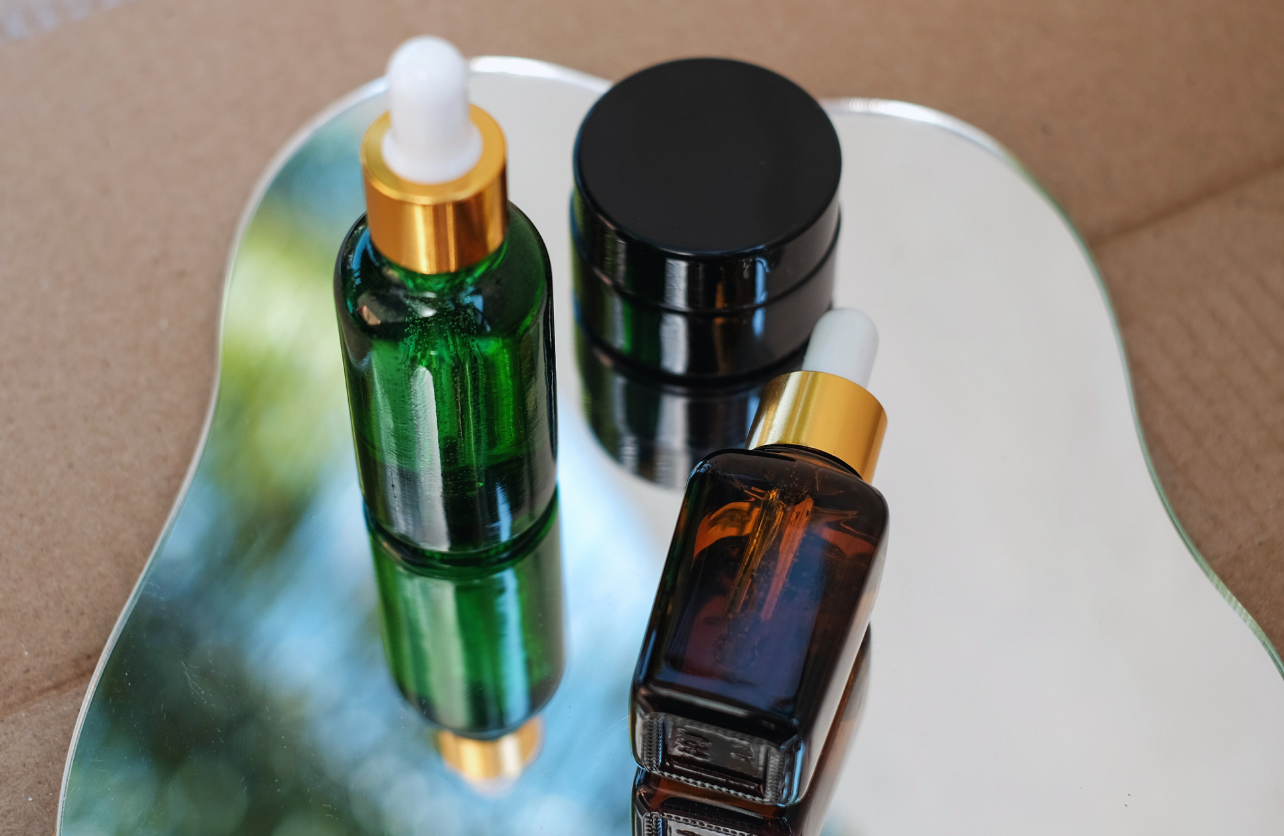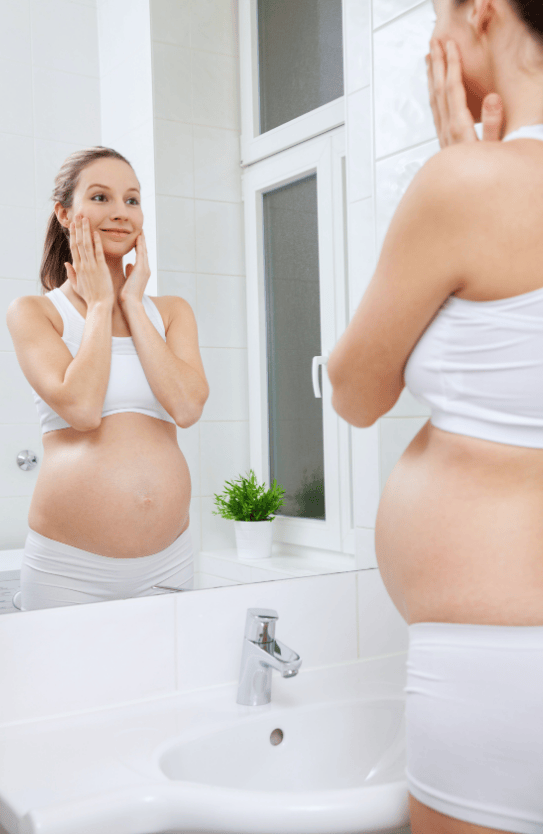Can You Use Retinol While Pregnant? What You Need to Know

Pregnancy often comes with a long list of lifestyle changes, from dietary adjustments to skincare overhauls. If you’re used to incorporating retinol into your skincare routine, you may be wondering whether it’s still safe to use while expecting. The short answer? No, retinol and other retinoids should generally be avoided during pregnancy due to potential risks to fetal development.
While topical retinoids may seem harmless, they are derived from vitamin A, and excessive vitamin A intake has been linked to birth defects. Many dermatologists recommend switching to safer alternatives during pregnancy to maintain healthy skin without compromising safety. Here’s what you need to know about retinol use while pregnant and what ingredients to use instead.
Why Retinol Is Not Recommended During Pregnancy
Retinol is a vitamin A derivative that works by accelerating cell turnover and promoting collagen production. While effective, excessive vitamin A intake—especially in the form of retinoids—has been linked to birth defects and other developmental issues in unborn babies. This is why most dermatologists and healthcare providers advise against using retinol during pregnancy.
Potential Risks of Retinol During Pregnancy
- Risk of Birth Defects
- Oral retinoids, such as isotretinoin (Accutane), are known to cause severe birth defects and are strictly avoided during pregnancy.
- While topical retinoids like retinol are absorbed in much smaller amounts, there is limited research on their safety during pregnancy. To err on the side of caution, doctors generally advise avoiding all retinoid-based skincare products.
- Increased Skin Sensitivity
- Pregnancy already makes the skin more sensitive due to hormonal changes.
- Retinol can lead to irritation, dryness, and increased sun sensitivity, making it more likely that pregnant individuals will experience redness, peeling, or sunburn.
- Lack of Sufficient Studies
- While topical retinoids are less absorbed than oral forms, there haven’t been enough conclusive studies to determine their absolute safety during pregnancy.
- Because of this uncertainty, most dermatologists and medical professionals recommend erring on the side of caution.
Safe Alternatives to Retinol During Pregnancy

If you’re looking for pregnancy-safe alternatives to maintain healthy, glowing skin, there are several effective options:
1. Bakuchiol – The Natural Retinol Alternative
- Bakuchiol is a plant-derived compound that has been shown to offer similar benefits to retinol without the risk of irritation or safety concerns.
- It helps with fine lines, uneven skin tone, and collagen production—making it an excellent pregnancy-safe substitute.
2. Vitamin C for Brightening and Anti-Aging
- Vitamin C is a powerful antioxidant that helps with skin brightening, hyperpigmentation, and collagen production.
- Unlike retinol, vitamin C is completely safe to use during pregnancy and can help protect against environmental damage.
3. Azelaic Acid for Acne and Hyperpigmentation
- If you struggle with pregnancy acne or dark spots, azelaic acid is a safe and effective alternative.
- It has antibacterial, anti-inflammatory, and skin-brightening properties, making it a great choice for those dealing with breakouts and melasma.
4. Hyaluronic Acid for Hydration
- Pregnancy hormones can make the skin drier than usual, so keeping it hydrated is essential.
- Hyaluronic acid is a safe, non-irritating humectant that deeply hydrates the skin without clogging pores.
5. Glycolic Acid for Gentle Exfoliation
- Low-concentration glycolic acid (under 10%) is generally considered safe if you’re looking for a safe way to exfoliate and improve skin texture.
- It helps remove dead skin cells and promote a healthy glow without the risks associated with retinoids.
How to Maintain Healthy Skin During Pregnancy
Even without retinol, you can still maintain a radiant and healthy complexion by following these skincare tips:
- Use a Gentle Cleanser
- Choose a fragrance-free, non-stripping cleanser to keep your skin balanced.
- Hydrate and Moisturize
- Pregnancy can cause dehydration, so use hydrating serums and moisturizers with ingredients like hyaluronic acid and ceramides.
- Always Wear Sunscreen
- Pregnancy can trigger melasma (dark patches on the skin), so it’s crucial to use a broad-spectrum SPF 30+ sunscreen daily.
- Avoid Harsh Exfoliants
- Skip strong chemical exfoliants like salicylic acid and high-percentage glycolic acid and opt for gentle exfoliation instead.
- Stay Hydrated and Eat Skin-Friendly Foods
- Drinking plenty of water and eating antioxidant-rich foods can support overall skin health.
When to Consult a Dermatologist
If you have specific skin concerns during pregnancy, such as severe acne, melasma, or irritation, consult a dermatologist or healthcare provider. They can help you find safe and effective alternatives tailored to your skin type.
Final Thoughts: Should You Use Retinol While Pregnant?
Due to the potential risks, the safest approach is to avoid retinol and other retinoids during pregnancy. While topical retinol may have minimal absorption, there isn’t enough research to confirm its safety for unborn babies.
Fortunately, many pregnancy-safe skincare alternatives, such as bakuchiol, vitamin C, azelaic acid, and hyaluronic acid, can help you maintain healthy skin without the risks. If you’re unsure about any skincare product, always check with your doctor before use.
Building a Stronger You
Supplement Institute is the fruit of extensive online publishing experience, spanning the breadth of SEO strategies to the nuances of paid advertisements. Our journey, marked by significant achievements and learning moments, inspires our core mission: to empower our readers with an abundance of information. By sharing insights and key learnings, we aim to provide you with the knowledge needed to navigate the complex world of supplements, helping you make well-informed decisions for your health and well-being. Welcome to Supplement Institute, where information is your greatest supplement.